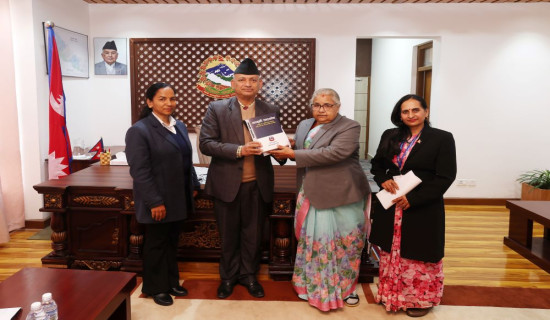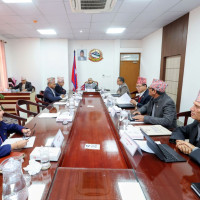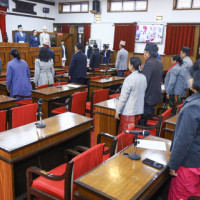- Tuesday, 10 February 2026
Empowering English Through Assessment
New Directions The South Asia Conference, organised by the British Council for the first time, took place in New Delhi, India, from 21st February to 22nd February 2025 at the India Habitat Centre. The main theme of the conference comprises “Technology and tradition: the changing face of assessment in English language learning systems”, and the sub-themes of the conference comprise “English for employability”, “Artificial intelligence (AI) in English education”, “Assessing young learners”, and “The role of English in multilingual education contexts”. The conference accumulated audiences and presenters from southeast Asia. And the panellists were from different countries like the UK, Nepal, Bangladesh, India, Sri Lanka and Pakistan.
When I viewed one of the sub-themes of the British Council New Directions South Asia Conference was “English for Employability”, it captured my immense interest to submit a proposal from Nepal since my research arena and area of expertise aligned together. After winning the travel grant from Nepal, my dream turned out to be true since I got an opportunity not only to report my research study but also to gain in-depth insights from plenary sessions and parallel sessions regarding different sub-themes of the conference.
I presented a research paper entitled “Undergraduate Students’ Perceptions of Public Speaking for Academic and Professional Development”. My presentation is associated with one of the sub-themes of the conference, that is, “English for employability”. This sharing shed light on how the integration of Vygotsky's social-cultural theory along with ZPD and Sen’s capability theory may help develop undergraduates’ public speaking competence, ensuring academic and professional enhancement. I felt the need to share my research findings since public speaking competence is highly demonstrated through assessments in Nepal, especially in higher education. Additionally, I believe public speaking competence is highly demonstrated in the academic and professional lives of individuals, whereby he/she can easily face both local and global academic and professional competencies.
I shared Vygotsky’s socio-cultural theory as significant for public speaking competence since students’ learning is highly influenced by their surroundings or environment. In addition, Vygotsky (1978) also suggests pedagogical implications based on student-centredness that argue a teacher’s prime duty is to help learners learn in a conducive or relaxing learning environment.
Vygotsky’s socio-cultural theory provided insights on how learning and environment are interrelated, how social interactions are important for developing public speaking skills, and how the role of teachers and capable peers through engaging in different public speaking activities such as group discussions, peer feedback, group presentations, individual presentations, and peer feedback are essential approaches for coping with public speaking challenges and enhancing this skill. Vygotsky defined the zone of proximal development as the distance between what an individual learns by his/her own capability, knowledge and understanding and his/her attainment of potential development through the help of capable peers, adults and instructors' guidance. Zone of proximal development (ZPD) refers to the difference between a learner’s actual learning at present and his/her potential learning in the future with the help of an instructor or capable peer.
And Sen’s capability theory provided insights on social and economic empowerment in relation to public speaking. Public speaking competence is a gateway for better job opportunities, job promotion and income for students whereby they develop their professional endeavours in the future and secure their lives. This skill helps in creating an identity for the individual and also helps fight against social discriminations or absurdities. To conclude, this skill is important for academic, professional and social empowerment whereby individuals can secure their lives.
Attending the conference has been very fruitful, as it not only gave me a space for sharing my presentation but also very valuable insights from scholars from South Asian countries. For example, I came to know Artificial Intelligence (AI) should not be an agent of inertia but also an agent of change. There is a need to generate awareness among parents, students and teachers on AI use and its implications, focusing on its positive and negative aspects. AI should not be an agent of inertia but should be an agent of change.
Furthermore, attending the conference made me internalise that setting up one course with content relatable to employability skills is a need of the time of globalisation to prepare students to face a competitive marketplace.
Moreover, different aspects of language education can be enhanced through AI, like language practice and conversation simulations, pronunciation and speech improvement, etc.
The most important takeaway from the conference is how different assessments, such as contextualised formative assessments, bilingual reading and writing exercises, peer-assisted learning assessments, and multimodal assessments, have positive impacts on the learning achievements of the students.
(The author is a visiting assistant professor at Kathmandu University School of Law and School of Engineering and a lecturer at Samriddhi College.)










-original-thumb.jpg)




